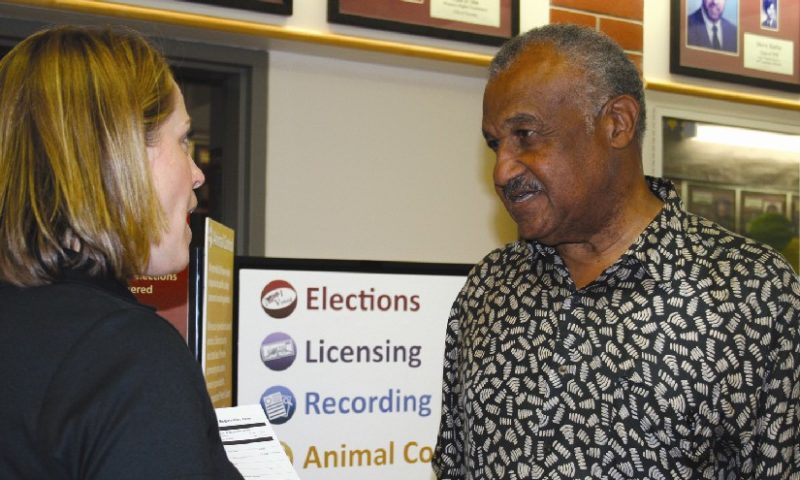Elections are over for now but not the voting process

What does it mean to be an American? For some perhaps it just means that you cheer the home team during the Olympics. But for many not born in this country, being an American is a dream they may risk everything including their life to pursue.
There are only two ways to become an American by law or by birth. If you are lucky enough to be born here you must do nothing to be American but if you were born elsewhere you must do many things including but not limited to taking an oath, taking a citizenship test and meeting certain residential and moral obligations.
So, why this citizenship lesson? Pierce County will celebrate “I am an American Day†on Sept. 17. Originally, this day was celebrated in May but in 1952 it was moved to Constitution Day to honor the signing of the United States Constitution, which occurred Sept. 17, 1787. Tacomans last celebrated “I am an American†Day in 1949. This year, a special naturalization ceremony for approximately 100 of Pierce County’s newest citizens will occur at Mt. Tahoma High School Auditorium from 11 a.m. to 2 p.m. Some individuals are choosing to renew their citizenship, similar to renewing their marriage vows, and they will be part of the day’s activities as well. If you would like more information on this event contact the Pierce County Auditor’s office at (253) 798-3189.
It’s not too much of a stretch to hope that those new citizens will take part in one of the greatest responsibilities of being an American, which is to vote. Senior citizens are the most reliable group of U.S. voters so it may have seemed counterintuitive to find Pierce County Auditor, Julie Anderson at the Senior Citizen Awareness Day celebration in August. But as Anderson said, she wasn’t at the event to promote voting to seniors, she was explaining to them why they needed to update their signatures. Illness, age and medications are just some of the reasons signatures change over time. Election personnel are required by Washington state law to verify signatures on the return envelope that contains the security envelope and absentee ballot.
The law also requires that personnel assigned to verify signatures must receive training on statewide standards. This training allows staff to recognize forged signatures, for example the difference in shaky handwriting caused by true tremors caused by age or disease versus those by someone forging a signature. Some variation may exist between signatures on the return envelope and the signature in the registration file; however if your signature has changed and you want your vote or your signature on a petition to not be called into question, consider updating your registration file.
You can obtain a Signature Update Form by visiting the Pierce county elections office at 2401 S 35th St, Room 200 in Tacoma or by registering online at www.vote.wa.gov. For additional information, call the Washington State Elections Office at 1-800-448-4881 or the Pierce County Elections Center at (253) 798-7430.
The Citizenship Oath
I hereby declare, on oath, that I absolutely and entirely renounce and abjure all allegiance and fidelity to any foreign prince, potentate, state, or sovereignty of whom or which I have heretofore been a subject or citizen; that I will support and defend the Constitution and laws of the United States of America against all enemies, foreign and domestic; that I will bear true faith and allegiance to the same; that I will bear arms on behalf of the United States when required by the law; that I will perform noncombatant service in the Armed Forces of the United States when required by the law; that I will perform work of national importance under civilian direction when required by the law; and that I take this obligation freely without any mental reservation or purpose of evasion; so help me God.
Trivia
Originally, NASA intended to call its first Space Shuttle the “Constitution†and dedicate it on Constitution Day. A write-in campaign by Star Trek fans to then President Gerald Ford asked that it be named after the Starship Enterprise. Ford, who had served during World War II with the “USS Enterprise†claimed he too was partial to the name. The shuttle was dedicated on Constitution Day 1976.

 The very first email that flashed up on my computer monitor came June 9 and said “Tacoma Police Department needs volunteers for their Active Mall Shooter exercise to be held August 12.â€Â Anyone that was interested should send an email. That sounded like a lot of fun, so I signed up.
The very first email that flashed up on my computer monitor came June 9 and said “Tacoma Police Department needs volunteers for their Active Mall Shooter exercise to be held August 12.â€Â Anyone that was interested should send an email. That sounded like a lot of fun, so I signed up.